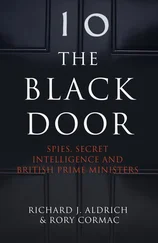The constantly changing names of the Soviet intelligence and security services are especially vexing and so, despite the inescapable anachronisms, the Soviet civilian intelligence service is referred to as ‘KGB’ until 1989, while the military intelligence service is denoted as ‘GRU’. In Britain, the Security Service is denoted here by the commonly known term ‘MI5’ and its sister organisation, the Secret Intelligence Service or MI6, is referred to as ‘SIS’. Ships’ and submarines’ names are italicised, e.g. HMS Turpin. Onshore naval bases and training establishments, e.g. HMS Anderson, are not italicised.
A-2—US Air Force Intelligence
ASA—Army Security Agency [American]
ASIO—Australian Security Intelligence Organisation
BDS—British Defence Staff, Washington
BfV—West German security service
BJ—‘Blue jacket’ file for signals intelligence or an individual intercept
Blue Book—Weekly digest of comint material for the PM
BND—Bundesnachrichtendienst – foreign intelligence service of West Germany
Brixmis—British Military Mission to the HQ Soviet Army in East Germany
BRUSA—Anglo–American signals intelligence agreement, 1943
‘C’—Chief of the British Secret Intelligence Service (SIS)
CESD—Communications-Electronics Security Department, succeeded by CESG
CESG—Communications-Electronics Security Group
CIA—Central Intelligence Agency [American]
comint—Communications intelligence
comsec—Communications security
CSE—Communications Security Establishment [Canadian]
CSU—Civil Service Union
CX—Prefix for a report originating with SIS
DIS—Defence Intelligence Staff
DMSI—Director of Management and Support for Intelligence in DIS
DSD—Defence Signals Department [Australian], formerly DSB
DWS—Diplomatic Wireless Service
elint—Electronic intelligence
FBI—Federal Bureau of Investigation [American]
GC&CS—Government Code and Cypher School
GCHQ—Government Communications Headquarters
GRU—Soviet Military Intelligence
GTAC—Government Technical Assistance Centre, established in 2000 – later NTAC
IRSIG—Instructions and Regulations concerning the Security of Signals Intelligence [Allied]
JIC—Joint Intelligence Committee
JSRU—Joint Speech Research Unit
JSSU—Joint Services Signals Unit, combined sigint collection units
KGB—Russian secret service
LCSA—London Communications Security Agency, until 1963
LCSA—London Communications-Electronics Security Agency, until 1965
LPG—London Processing Group
MI5—Security Service
MI6—Secret Intelligence Service (also SIS)
MiG—Mikoyan – Soviet fighter aircraft
MoD—Ministry of Defence
MTI—Methods to Improve, sequential five-year sigint programmes at GCHQ
NATO—North Atlantic Treaty Organisation
NSA—National Security Agency [American]
NTAC—National Technical Assistance Centre, previously GTAC
PHP—Post-Hostilities Planning Committee
PSIS—Permanent Secretaries’ Committee on the Intelligence Services
SAS—Special Air Service
SBS—Special Boat Service
SDECE—French intelligence service
Sigdasys—An allied operational sigint distribution system in Germany in the 1980s
sigint—Signals intelligence
SIS—Secret Intelligence Service (also MI6)
SOE—Special Operations Executive
SUSLO—Special United States Liaison Officer based in Britain
TICOM—Target Intelligence Committee dealing with signals intelligence
UKUSA—UK–USA signals intelligence agreements
VHF—Very High Frequency
Y—Wireless interception, usually low-level
Y Section—SIS unit undertaking interception activities
Y Service—Signals interception arms of the three services
Introduction
GCHQ – The Last Secret?
GCHQ has been by far the most valuable source of intelligence for the British Government ever since it began operating at Bletchley during the last war. British skills in interception and code-breaking are unique and highly valued by our allies. GCHQ has been a key element in our relationship with the United States for more than forty years.
Denis Healey, House of Commons, 27 February 1984 1
‘GCHQ’ is the last great British secret. For more than half a century, Government Communications Headquarters – the successor to the famous wartime code-breaking organisation at Bletchley Park – has been the nation’s largest and yet most elusive intelligence service. During all of this period it has commanded more staff than the Security Service (MI5) and the Secret Intelligence Service (SIS) combined, and has enjoyed the lion’s share of Britain’s secret service budget. GCHQ’s product, known as signals intelligence or ‘sigint’, constituted the majority of the secret information available to political decision-makers during the Cold War. Since then, it has become yet more significant in an increasingly ‘wired’ world. GCHQ now plays a leading role in shaping Britain’s secret state, and in the summer of 2003 it relocated to a spectacular new headquarters that constituted the single largest construction project in Europe. Today, it is more important than ever – yet we know almost nothing about it. 2
By contrast, the wartime work of Bletchley Park is widely celebrated. The importance of decrypted German communications – known as ‘the Ultra secret’ – to Britain’s victory over the Axis is universally recognised. Winston Churchill’s wartime addiction to his daily supply of ‘Ultra’ intelligence, derived from supposedly impenetrable German cypher machines such as ‘Enigma’, is legendary. The mathematical triumphs of brilliant figures such as Alan Turing are a central part of the story of Allied success in the Second World War. The astonishing achievement of signals intelligence allowed Allied prime ministers and presidents to see into the minds of their Axis enemies. Thanks to ‘sigint’ we too can now read about the futile attempts of Japanese leaders to seek a favourable armistice in August 1945, even as the last screws were being tightened on the atomic bombs destined for Hiroshima and Nagasaki. 3
However, shortly after VJ-Day, something rather odd happens. In the words of Christopher Andrew, the world’s leading intelligence historian, we are confronted with the sudden disappearance of signals intelligence from the historical landscape. This is an extraordinary omission which, according to Andrew, has ‘seriously distorted the study of the Cold War’. 4 Intelligence services were at the forefront of the Cold War, yet most accounts of international relations after 1945 stubbornly refuse to recognise even the existence of the code-breakers who actually constituted the largest part of this apparatus. 5 Nor did this amazing cloak of historical invisibility stop with the end of the Cold War. In 2004, following the furore over the role of intelligence in justifying the invasion of Iraq, Lord Butler, a former Cabinet Secretary, was appointed to undertake an inquiry into ‘British Intelligence and Weapons of Mass Destruction’. Butler’s report into the workings of the secret agencies was unprecedented in its depth and detail. However, GCHQ is mentioned only once, in the list of abbreviations, where we are told that the acronym stands for ‘Government Communications Headquarters’. 6 This is all we learn, for in the subsequent 260 pages the term GCHQ is in fact never used, and the organisation is never discussed. The subject is simply too secret.
Sigint was not simply a Second World War phenomenon. Throughout the twentieth century, Britain’s code-breakers continually supplied Downing Street with the most precious jewels of British intelligence, discreetly delivered in what became known as the ‘Blue Book’. Nicholas Henderson, formerly Britain’s Ambassador to Washington, explains: ‘All Prime Ministers love intelligence, because it’s a sort of weapon…The intelligence reports used to arrive in special little boxes, and it gave them a belief that they had a direct line to something that no other ordinary departments have.’ It was partly for this reason that British Prime Ministers ‘never minded spending money on intelligence’. Signals intelligence also matters to political leaders because it allows them to hear the authentic voices of their enemies. Although Winston Churchill was the most famous recipient of such material, his predecessor, Neville Chamberlain, was also offered some remarkable insights into the mind of Adolf Hitler. In 1939, shortly after the Munich appeasement, Chamberlain was given an intelligence report which showed that Hitler habitually referred to him in private as ‘der alter Arschloch’, or ‘the old arsehole’. Understandably, this revelation ‘had a profound effect on Chamberlain’. 7
Читать дальше












